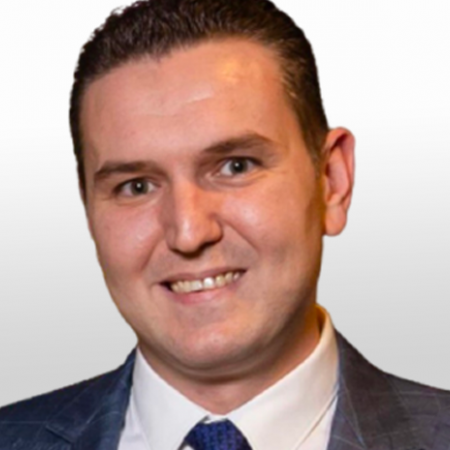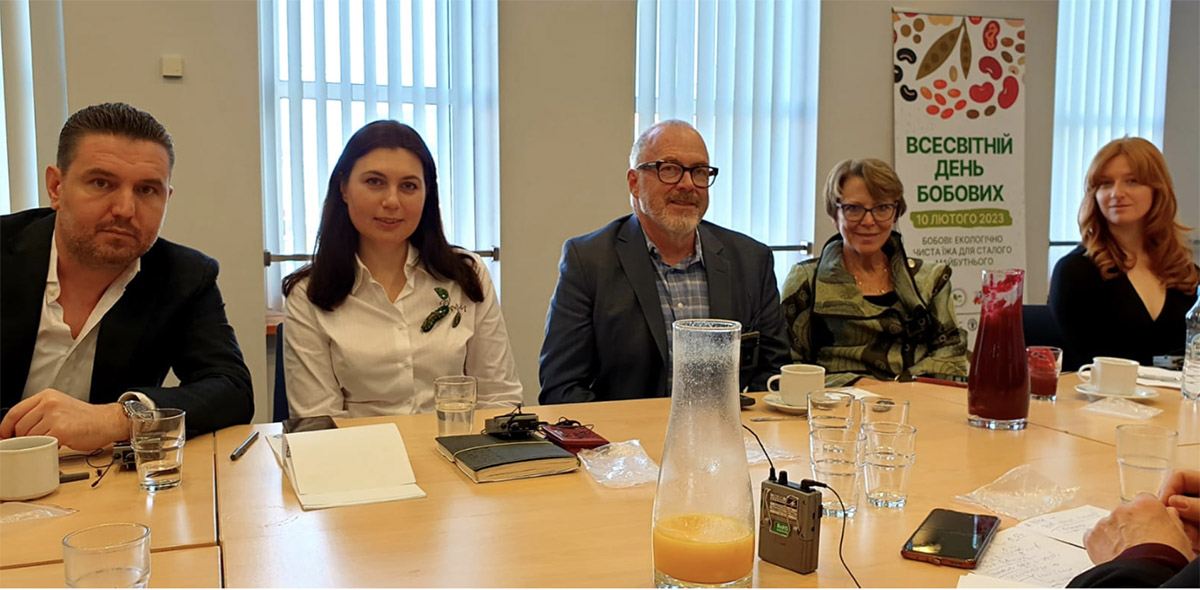March 14, 2023
Representing Ukrainian agribusiness at the GPC’s World Pulses Day event in Poland, Onur Vatan knows the importance of collaboration in times of crisis. We talk to him about what 2023 holds for the Ukrainian market.


Writers: Alina Viarbouskaya, Aliaksei Hulitski
Onur Vatan is a panelist on the Dry Peas panel at Pulses 23, which will be held on May 28-31 in Sydney, Australia. Not registered yet? You can do so here.
Since the International Year of Pulses (IYP) in 2016, awareness around the benefits of producing and consuming pulses has been raised to an international level. The current geopolitical situation and the ongoing crises facing populations have only highlighted the important role pulses can play in mitigating climate change, food insecurity and malnutrition. World Pulses Day, held every year on February 10, is a great moment to reflect on this and bring together key industry players from around the world to discuss the future of pulses.
On February 9, 2023, the GPC hosted an event at the port of Gdynia, Poland, in cooperation with the Ukraine Pulse Association and the Polish-Ukrainian Chambre of Commerce. Local press were invited to witness industry members discuss the challenges facing the pulses industry and how best to move forward within the context of the war in Ukraine.
Present at the event was Onur Vatan, head of the trading department at Sintez Group & Co., one of the largest Ukrainian exporters and the main supplier of agricultural products from the Black Sea to world markets. We caught up with Onur to discuss the significance of the World Pulses Day event and get his insights into the Ukrainian market.

Onur with Antonina Sklyarenko (Ukraine Pulse Association) and Randy Duckworth, Cindy Brown and Lara Gilmour of GPC at the World Pulses Day event in Gdynia.
“The annual event [of] World Pulses Day provides a special opportunity for all of us to unite, share our experience, discuss upcoming trends and bring the benefits of pulses to the world," he said.
Sintez Group & Co. has been a member of the Global Pulse Confederation for more than 5 years. The company truly believes that the annual World Pulses Day event is of great importance to anyone in the pulses business, seeing it as a platform for essential discussions, fresh ideas and the formation of fruitful business connections.
Onur’s main expectation on World Pulses Day was mutual cooperation between Sintez Group & Co. and other companies: “It should highlight [the] main directions for each of us to consider and to build our strategies accordingly in order to adhere to our common missions of sustainable food systems and ending world hunger.”
Speaking at the press event in Gdynia as a representative of Ukrainian agirbusiness, Onur spoke about the difficulties his country had faced in the past year in the context of the war, which has hugely impacted both the personal and professional lives of his compatriots. He stressed to all participants the enormous challenges faced by Ukrainians.
When asked if it has been possible for Sintez Group & Co. to enter new markets under such conditions, Onur replied that, in a wartime situation, the focus is not on new markets but more on new ways of working. “We had to be quick and flexible in decision making, we had to find new logistical ways and this issue was of main importance to all Ukrainian companies”, he explained.
In this regard, we discussed the situation for pulse growers in Ukraine and the seeding expectations for 2023. Onur explained that military activities and decreased crop areas due to occupied territories have caused growers to reconsider and revise areas under certain crops. As an example, winter crops were reduced by 30-40% and the spring crop campaign is also expected to be decreased.
On the other hand, faced with complicated export and storage problems for grain, Onur pointed out that farmers are increasingly turning their attention to pulses, oilseeds and other special crops, an unexpected silver lining for the pulse industry. This is also no doubt aided by the difficulty of accessing fertilizer, encouraging Ukrainian farmers to increasingly appreciate pulses’ nitrogen-fixing qualities and low input needs. Commenting further on production trends, Onur mentioned the growing tendency for processing and selling ready-to-use products, which are currently more profitable than selling raw materials.
In order to ensure the potential opportunity for increased pulse production can be maximized, Onur stressed an important point: farmers lack the necessary expertise and guidance in pulse growing and, consequently, often fail to achieve the type, size and quality expected. “It is of crucial importance to initiate close interaction of growers and traders to make it a win-win situation for both sides”, he said.
Throughout the war, the Ukraine Pulse Association has demonstrated strength and a great dedication to continuing its mission even in times of crisis.
Despite the complications of the Russian invasion, the group holds regular meetings, both offline and online, of members, farmers, exporters, traders, logistics specialists and many other representatives of the field. Onur highlighted the support of the Polish-Ukrainian Chamber of Commerce and the President of the Ukraine Pulse Association, Antonina Sklyarenko, for “her devotion and great initiative”.
Logistics remains the main challenge for both traders and farmers. Onur stressed the enormous impact it has on planning in the agricultural industry, causing a whole host of complications for members of Ukrainian agribusiness. The uncertainty around the Black Sea Grain Initiative, the lack of containers, increasing railway rates, massive queues at borders and in ports and long transit times are just some of the issues that must be taken into account when making any decision.
The Black Sea Grain Initiative, an agreement between Russia and Ukraine made with Türkiye and the United Nations (UN) to ensure the safe transit of key foodstuffs and fertilizer from key Ukrainian ports, is currently under threat. The deal was signed in July 2022 and had a validity of 120 days; though it has since been renewed, it is due to expire again on March 18, 2023. The initative has been highlighted as key in controlling rapidly increasing food prices and food insecurity in developing nations. As the deadline looms, the UN and Ukraine are calling for a one-year renewal of the deal but Russia is yet to confirm any extension.
“Nevertheless, limited access to the main ports of Ukraine has led to the development of new export terminals on the western part and in the ports of Izmail and Reni. Many exporters showed the ability to efficiently reorient and find new ways. We have various examples when farmers managed to deliver goods directly to European customers by trucks,” said Onur.
He explained that the way through Constanza, Romania remains a popular choice for exports, largely due to a lack of containers for the transport of goods. He added that Sintez Group & Co faced this problem, too, but has redirected a major part of its stocks through Türkiye’s Tekirdag port, which helped them to save some time.
When it comes to predicting how the logistic situation will evolve in 2023 and how this will impact the pulse trade, Onur is cautious: “It all depends on the war situation and the grain corridor, which is far from predictable.” he concluded.

Onur Vatan / Ukrainian pulses / World Pulses Day / Ukraine Pulse Association / Sintez Group & Co / Black Sea Grain Initiative
Disclaimer: The opinions or views expressed in this publication are those of the authors or quoted persons. They do not purport to reflect the opinions or views of the Global Pulse Confederation or its members.